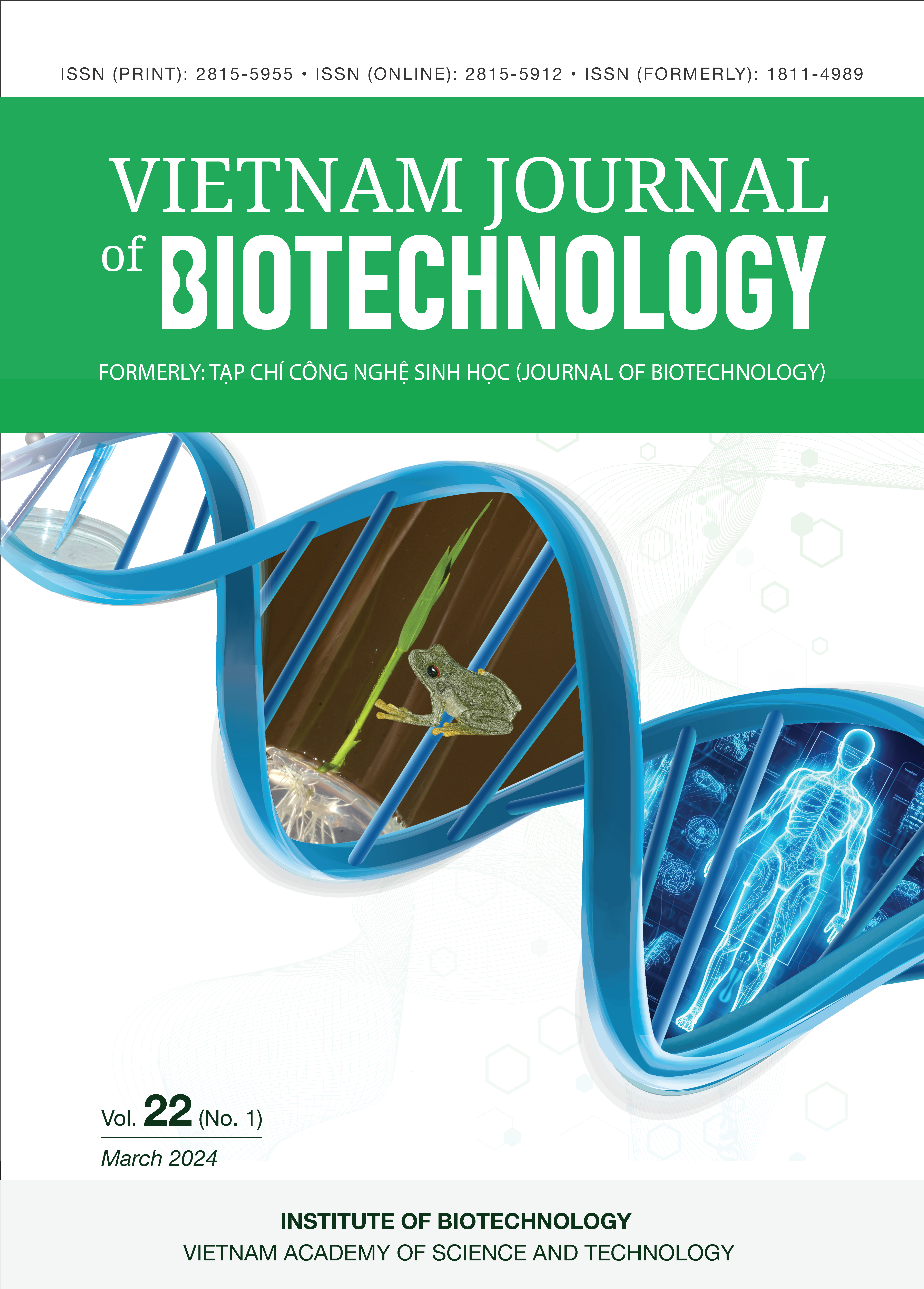Construction of the RNAi plasmids to suppress the expression of chitin synthase-encoding genes (chs) in fungus Mucor lusitanicus
Author affiliations
DOI:
https://doi.org/10.15625/vjbt-20234Keywords:
chitin, chitin synthase, cell wall, mucormycosis, Mucor lusitanicusAbstract
Mucormycosis is an emerging fungal infection caused by many species belonging to the order Mucorales. The lack of effective therapies to treat this disease is due to our limited understanding of its pathogenesis. Chitin is one of the fungal-specific components of the cell wall. In fungi, chitin synthase and chitin deacetylase are the key enzymes involved in chitin biogenesis. The RNAi mechanisms have been well-studied in the fungus Mucor-lusitanicus, a model organism for mucormycosis studies. The RNAi technique has been previously applied to study gene function. In this study, two chitin synthase-encoding genes (chs1 and chs2) were identified using transcriptomic data. Approximately 1 kb of DNA fragments of the target genes were amplified and cloned into the pMAT1812 vector to generate the corresponding RNAi plasmids. Initial screening by colony PCR identified 3/10 and 1/10 potential colonies that might contain the RNAi plasmids. One plasmid for each clone was selected and named pAT63 and pAT64, corresponding to the chs1 and chs2 genes, respectively. The validation of these recombinant RNAi plasmids using different restriction enzymes (NotI - PvuII and SalI - PstI for plasmids pAT63 and pAT64, respectively) showed the expected results. The DNA sequencing of the plasmids pAT63 and pAT64 using specific primers validated the results of the screening process. These RNAi plasmids can be used to suppress the expression of the target genes. The silencing mechanism of the target genes will be triggered by the expression of the RNAi plasmids. This approach allows us to study the function of the chitin synthase-encoding genes in this fungus.
Downloads
Downloads
Published
How to Cite
Issue
Section
Funding data
-
National Foundation for Science and Technology Development
Grant numbers 106.02-2018.345







